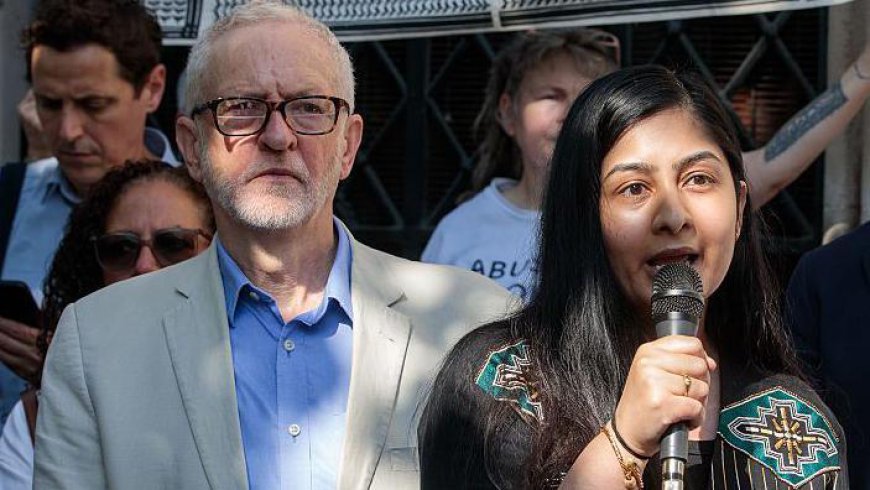Hopeful highs and electoral lows
True change won’t come from the ballot but from sustained, people-powered movements ~ Andrew J Boyer ~ Two recent developments have jolted voters out of despair on both sides of the Atlantic: Zohran Mamdani’s upset win in New York City’s Democratic mayoral primary, and Zarah Sultana’s announcement that she will leave Labour to launch a The post Hopeful highs and electoral lows appeared first on Freedom News.


True change won’t come from the ballot but from sustained, people-powered movements
~ Andrew J Boyer ~
Two recent developments have jolted voters out of despair on both sides of the Atlantic: Zohran Mamdani’s upset win in New York City’s Democratic mayoral primary, and Zarah Sultana’s announcement that she will leave Labour to launch a new party with Jeremy Corbyn. Think-pieces will spring up about how these insurgents will finally listen to working people, and those who have felt utterly hopeless may feel a surge of relief and optimism—even if only briefly.
For anarchists, this cycle is all too familiar. There is no denying that sympathetic politicians can deliver gains—minimum-wage increases, housing pledges or public-health reforms—but the system in which these office-seekers operate invariably snaps back into oppression, often with greater force. The key question is not which short-term reforms make headlines, but what abuses these new office-holders will permit once they secure institutional power.
Since relocating to Britain in 2016, I’ve seen five different prime ministers assume office. I asked a half-dozen friends, “When did Britain last feel well-governed?” Every one glanced at the ground and came up blank. Even die-hard Labour supporters could not point to a single year when they felt in control. Brexit votes, U.S. presidential seasons, a global pandemic and the cost-of-living crisis have each promised salvation, only to deliver deeper inequality and attrition. Politicians dangle hope, then enact the opposite of what people demanded.
The United States plays a similar game, dressed in pageantry. Many rightly praise the Obama administration’s role in securing marriage equality in 2015—yet that same era saw record deportations, aggressive policing and drone strikes abroad, fuelling the conditions for today’s resurgent far right. Progressives such as Alexandria Ocasio-Cortez and Rashida Talib rode the 2019–20 “big blue wave,” alongside fellow Democratic-Socialists like Zohran Mamdani, into Joe Biden’s presidency. CNN hailed the trifecta: White House, House of Representatives and Senate under one party’s control. Still, key victories remained unsealed: Roe v. Wade was not codified into federal law, deportations and police violence continued at alarming rates, and U.S. funds kept flowing to Israel’s assault on Palestinians.
Across the pond, Jeremy Corbyn’s 2017 Labour campaign—built on anti-austerity themes like free education, social housing and expanded welfare—resonated more deeply than Bernie Sanders ever did in 2016. His manifesto hit all the right marks, yet Brexit-obsessed Tory and Labour centrists swiftly side-lined him. By the 2019 general election, Labour turnout plunged to its lowest since 1935. Corbyn’s departure paved the way for Keir Starmer, whose centrist pivot has included an open purge of Labour’s socialist wing. This internal cleansing underscores how the system preserves itself, no matter how principled or skilful the leader.
Politics is quintessentially relational. Whether we cast ballots on televised election nights, debate policy in neighbourhood assemblies or refine personal ideologies in conversation with friends, we place faith in others to safeguard our material realities. That leap of hope is intimate—but also precarious, because it trades direct action for the promise of representation.
If we accept that politics will always carry emotional weight, the question becomes: where should we stake our hopes? On the fast-paced, high-stakes spectacle of elections, or on slow, organic movement-building? The former resembles an arcade claw machine: patrons—often children—feed coins, maneuver the claw, and occasionally win a plush prize, but most of the time the toy slips away. Casinos follow the same logic: gamblers know the odds favour the house, yet the thrill of the chase keeps them returning. In our 24-hour social-media climate, where hot takes and breaking news are one swipe away, the “chase versus reward” circuitry in our brains is even more tightly engaged by election cycles.
This is not to brand voters as gullible. From elementary school onward, we learn to vote: first on class themes, then student body councils, and eventually local and national contests. Voting feels sacred because it is our primary civic ritual. Yet non-voters often face scorn and assumptions of apathy, when in reality many are active in mutual aid, tenants’ unions, direct action and other vital, non-electoral work. Some of history’s most significant change-makers operated outside the ballot box. If mainstream media treated community organising with the same fervour they reserve for politicians, our sense of viable alternatives might expand.
As the saying goes, “Be tough on systems, soft on people.” Elections will always stir our emotions, and perhaps an independent Labour alternative or a Democratic-Socialist mayor of New York will achieve breakthroughs. Still, history warns that office-holders promising change from within will either moderate or be absorbed by the system’s self-preserving logic. If we seek lasting liberation, we must sustain people-powered movements that render oppressive structures obsolete—beyond the ballot.
Image: Radio Onda d’Urto CC BY-NC-ND
The post Hopeful highs and electoral lows appeared first on Freedom News.
What's Your Reaction?
























